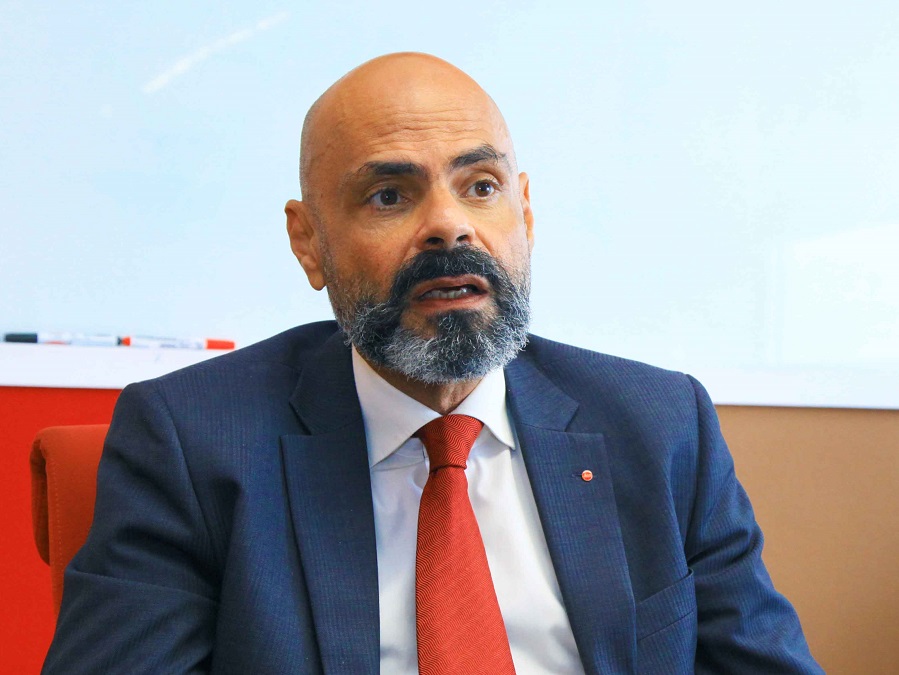
Africa is sitting on a well of potential that if tapped could lead to substantial growth and development along with a complete transformation of the continent. The largest share of this potential lies within the dawning of the Fourth Industrial Revolution (4IR) across the continent.
With a rapidly growing youth population, growing need for new skills, and high levels of unemployment, there is an imperative to accelerate digital transformation across all of Africa’s industries and sectors. But, through the power of technologies such as Cloud, AI and machine learning, digital transformation will also allow the continent to reap the many benefits that 4IR presents African economies, including securing a share of the digital economy which is estimated to be between 4.5 to 15.5% of world GDP.
However, Africa’s potential has long been a point of discussion among both the public and private sectors of its nations and yet we are still far from reaching it, despite vast digital transformation efforts being adopted and implemented across the continent.
So why do we continue to be sluggish in demonstrating progress in moving towards a digital economy? In a bid to pursue transformation, organisations can often lose sight of the holistic view of how the technologies integrated to enable transformation fit into current systems and operations.
This means that Africa must start to look at digital transformation as an all-inclusive and targeted undertaking and leaders need to ensure that they are not overwhelmed by a plethora of “shiny objects” when choosing which technologies to pursue to enable change.
A holistic approach to digital transformation is key to its success because it ensures a culture that embraces and withstands change while also allowing for technologies to be used more economically and provide the best outcome.
A holistic approach looks at using technology to improve communication and collaboration between employees, leverages the data generated by the business to make better decisions, increases efficiencies, and ensures robust security, while maintaining the relevant digital skills in the workforce.
In addition, migrating to the cloud is an effective way to drive operational efficiency. A full understanding of their landscape and urgently executing those triggers that require immediate attention is the first route to successful cloud migration. Microsoft Azure, for instance, has the capability of supporting business to manage and optimize costs, create a unique cloud strategy for their business and most importantly, meet their local, global and industry requirements with a fully comprehensive compliance portfolio that is kept continuously up to date.
As we support more and more business to remain productive during this pandemic, making use of collaborative tools such as Microsoft’s Teams can ensure employees are able to engage with one another at any time, securely, while working in productivity can allow employees to share, comment, and co-author their work effectively. Analytics platforms like Microsoft PowerBI can turn data into opportunity by analysing enterprise data for insights and presenting them through easy to understand data visualisation tools.
Using technology to close the gaps or inefficiencies in an organisation and improve on key areas in a business will facilitate increased agility, reduce inefficiencies, and enable the continent to adapt rapidly to disruption. An all-encompassing digital transformation strategy will also lead to optimised functionalities, minimise risk or errors, increase productivity and encourage innovative and fresh ideas or perspectives.
Doing so will provide Africa with a competitive advantage at a global scale and enable the realisation of the continent as the powerhouse it could be.
To ensure that African organisations derive real value from emerging technologies, they must be ready to fundamentally redefine their business strategies and operations. In essence, they cannot be adopted as a separate object or mechanism from the everyday systems of a business or organisation. Technology should be deployed through an inside out strategy, and not the other way around.
Organisations must first define what it is they want technologies, such as AI and the cloud, to change or create and then develop an environment that is conducive to those goals by integrating the right technologies and combining them with the human capabilities that is already possessed.
In conclusion, digital transformation is about bringing together people, data, and processes and can create value if organisations make the most of their journey by focusing on empowering people to achieve more with the right technology. Microsoft is committed to its role as an enabler of transformation in Africa and will continue to support the continent throughout its transformation journey so that it can reach its potential.
By Ibrahim Youssry, Regional General Manager MEA Multi-Country Cluster for Microsoft

